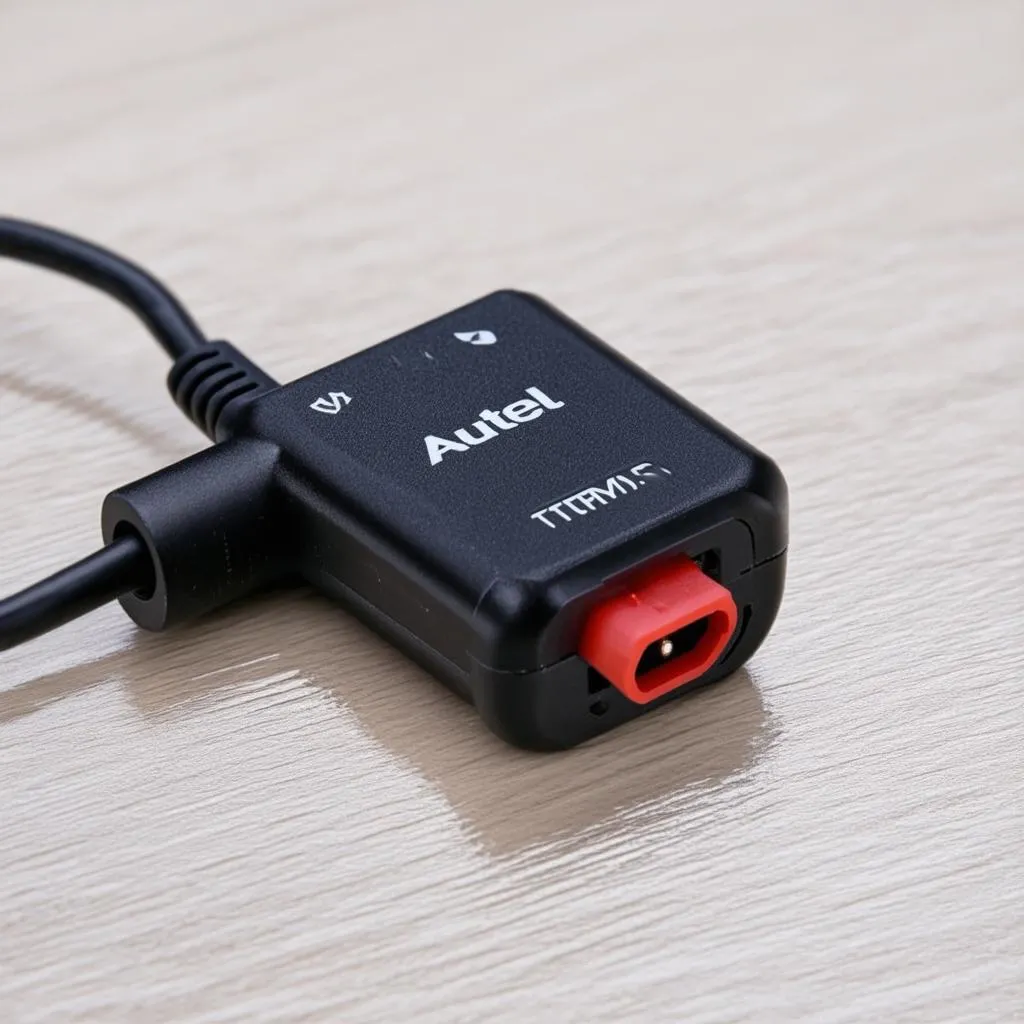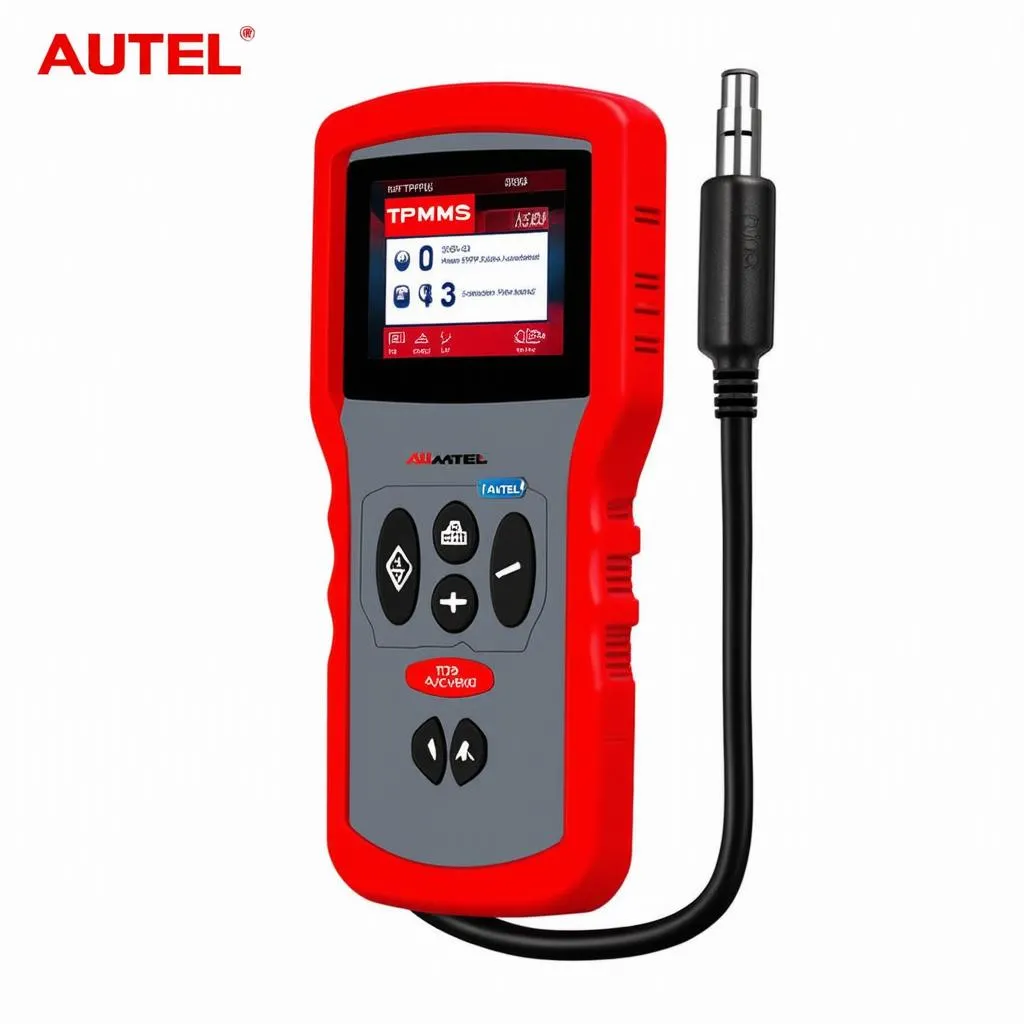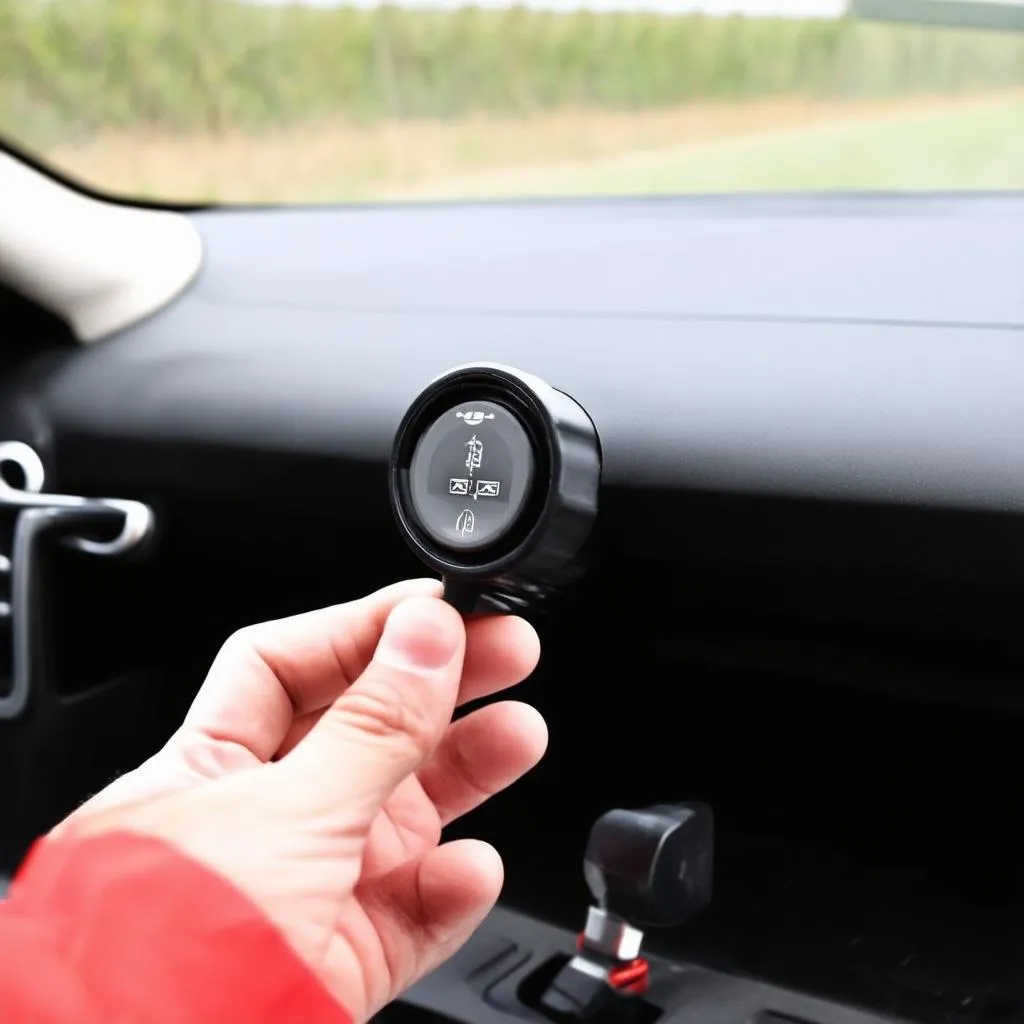Have you ever wondered how your car’s TPMS (Tire Pressure Monitoring System) works? Imagine driving down the road, blissfully unaware that one of your tires is slowly losing air. Suddenly, a warning light flashes on your dashboard, jolting you back to reality. That’s your TPMS system doing its job – alerting you to a potential danger before it’s too late.
What are Autel TPMS MX Sensors?
Autel Tpms Mx Sensors are a popular choice for car owners looking to replace or upgrade their existing TPMS sensors. But what exactly are they, and why should you consider them?
Understanding TPMS Sensors:
Imagine a tiny, intelligent device nestled within each tire valve. That’s your TPMS sensor. It constantly monitors the air pressure inside your tire and transmits this information to your car’s computer system. If the pressure drops below a predetermined threshold, the system triggers a warning light to let you know it’s time to top up your tires.
Why Autel?
Autel is a leading manufacturer of automotive diagnostic tools and equipment, including TPMS sensors. Their MX sensors are known for their reliability, accuracy, and ease of use.
Key Features of Autel TPMS MX Sensors:
- Precision and Accuracy: Autel MX sensors provide precise tire pressure readings, ensuring you’re always aware of your tires’ condition.
- Wide Compatibility: These sensors are compatible with a wide range of vehicles, making them a versatile choice for many car owners.
- Durability: Autel MX sensors are built to withstand the rigors of daily driving, ensuring they last for years to come.
- Easy Installation: These sensors are designed for easy installation, often requiring minimal tools and expertise.
Common Questions about Autel TPMS MX Sensors
Q1: Are Autel TPMS MX Sensors compatible with my car?
This is a crucial question. Compatibility is key! While Autel MX sensors are compatible with a wide range of vehicles, it’s important to double-check compatibility with your specific car model. You can consult the Autel website or contact a local automotive technician for assistance.
Q2: How do I know which Autel TPMS MX Sensors I need?
Autel offers several different types of MX sensors, each with its own unique features and applications. To choose the right sensors for your car, you’ll need to consider factors such as:
- Vehicle Make and Model: Some vehicles have specific sensor requirements.
- Tire Type: Different tires have different sensor configurations.
- TPMS System Type: Some cars use direct TPMS, while others use indirect TPMS.
Q3: How do I install Autel TPMS MX Sensors?
Installing Autel MX sensors typically involves:
- Removing the Old Sensors: Carefully remove the old sensors from your tire valves.
- Installing the New Sensors: Screw the new sensors onto the tire valves.
- Programming the Sensors: Use a TPMS diagnostic tool to program the new sensors to your car’s system.
Important Note: If you’re not comfortable performing this procedure yourself, it’s best to seek professional assistance from a qualified automotive technician.
Q4: How often should I check my TPMS?
Dr. William Brown, renowned automotive expert and author of “The Complete Guide to TPMS”, recommends checking your TPMS:
- Monthly: Monitor tire pressure to ensure it’s within the manufacturer’s recommended range.
- Before long trips: Ensure your tires are properly inflated for safe and efficient driving.
Q5: How do I know if my TPMS is malfunctioning?
Here are some signs that your TPMS may be experiencing issues:
- The TPMS warning light is constantly on: This could indicate a problem with the sensors, the TPMS module, or a low tire pressure.
- The TPMS warning light is flickering: This could indicate a temporary issue, such as a loose connection.
- The TPMS warning light is not working: This could indicate a faulty sensor or a malfunctioning TPMS module.
If you suspect your TPMS is malfunctioning, it’s essential to have it inspected by a qualified automotive technician.
The Connection Between TPMS Sensors and Feng Shui
Some believe that the balance of energy within your vehicle, which is closely tied to your overall well-being, can be influenced by the condition of your TPMS sensors. Just as the elements of earth, water, fire, air, and metal are interconnected in Feng Shui, the interconnectedness of your TPMS sensors and tire pressure can impact the flow of energy within your vehicle.
Imagine a tire with low pressure – it’s like a blocked energy channel, hindering the smooth flow of energy throughout your vehicle. This can lead to feelings of instability, lack of control, and even anxiety.
By ensuring your TPMS sensors are working properly, you can maintain optimal tire pressure, allowing for a harmonious flow of energy within your vehicle and promoting a sense of peace and stability during your journeys.
Related Products
- Autel MXSensorsMVK MX Sensors TPMS Sensor Valves Set
- Buy 20 Autel MX TPMS Sensors
- Autel Diagnostic Tool with Built-in TPMS
- Autel MX TPMS
Frequently Asked Questions
- How do I know if my car has a TPMS system?
- What is the difference between direct and indirect TPMS?
- How can I reset my TPMS after inflating my tires?
- What does it mean when my TPMS warning light flashes?
- What are some common TPMS problems and how can I fix them?
Related Articles
Conclusion
Autel TPMS MX Sensors are a smart investment for any car owner who wants to ensure their vehicle’s safety and efficiency. These sensors provide accurate tire pressure monitoring, alerting you to potential problems before they become serious.
If you’re considering upgrading your TPMS system or replacing your existing sensors, Autel MX sensors are a reliable and user-friendly choice.
 autel-mx-tpms-sensor
autel-mx-tpms-sensor
 autel-tpms-tool
autel-tpms-tool
 autel-mx-tpms-car
autel-mx-tpms-car
Remember, maintaining optimal tire pressure is crucial for both your safety and the longevity of your tires. If you have any further questions about Autel TPMS MX Sensors or your TPMS system in general, please don’t hesitate to contact us via Whatsapp: +84767531508. We have a team of automotive experts available 24/7 to provide you with the best possible support.
Let us know your thoughts in the comments below and share this article with your fellow car enthusiasts!